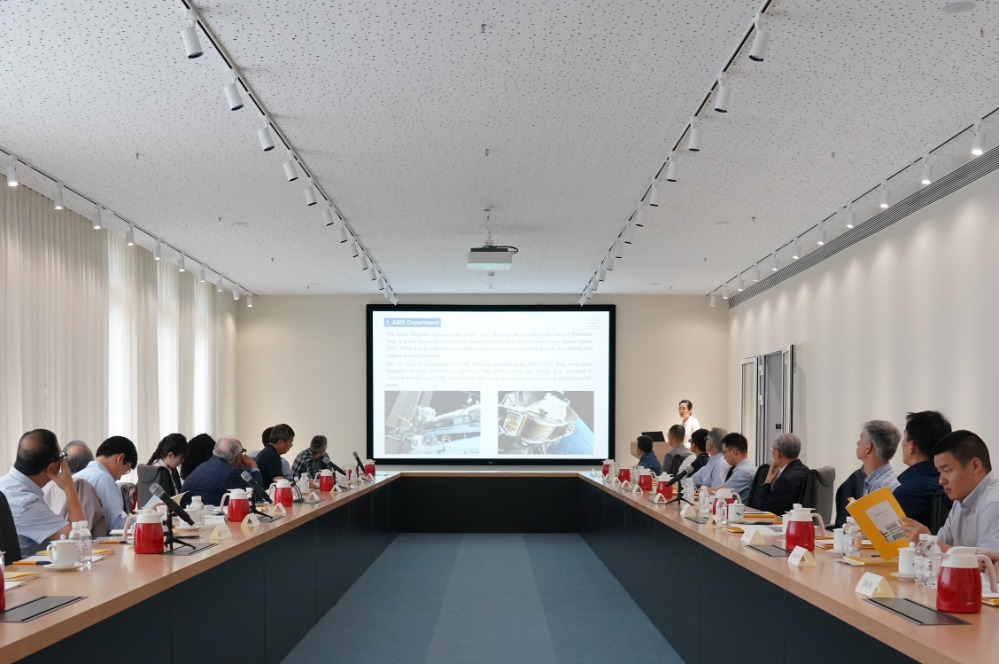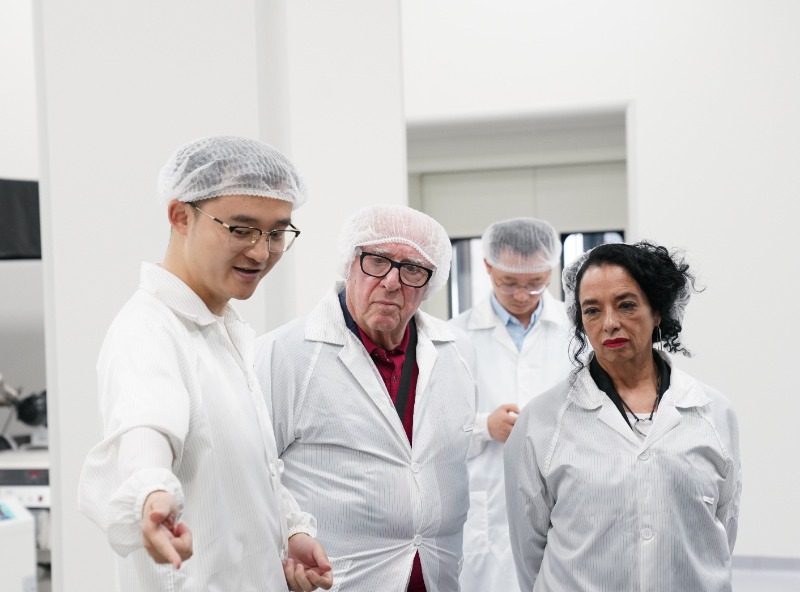Shandong Institute of Advanced Technology (SDIAT) Held the Symposium on its Framework 2025-2030

On May 23, Shandong Institute of Advanced Technology (SDIAT) held a symposium regarding its 2025-2030 framework. Lin Cheng, Member of the Standing Committee of the National People’s Congress, Vice Chairman of the Shandong Committee of the Chinese People’s Political Consultive Conference (CPPCC), and President of SDIAT, hosted the meeting.
The review panel was chaired by Professor Luciano Maiani, former Director-General of the European Organization for Nuclear Research (CERN). Other panel members included senior scientists from leading institutions: Professor Gang Chen, Director of the Academic Committee of the Institute of High Energy Physics (IHEP), Chinese Academy of Sciences (CAS); Professor Yizhong Fan, Deputy Director of the Purple Mountain Observatory, CAS; Professor Xinmin Zhang, chief scientist for China’s Primordial Gravitational Wave Detection; Professor Zuotang Liang, Director of Key Laboratory of Particle Physics and Particle Irradiation; Professor Changying Zhao, Director of the Institute of Engineering Theromophysics of Shanghai Jiao Tong University; and Professor Shubin Liu of University of Science and Technology of China.
During the symposium, the panel visited core facilities at SDIAT, including the AMS Global Data Center, laboratories, and SDIAT library. They received a detailed presentation regarding the development and 2025-2030 framework of SDIAT from Professor Zheng Cui, Director of the Academic Development Department, and engaged in in-depth discussions with participating scholars.

The panel recognized SDIAT’s achievements over the past five years, noting its growing academic influence in the world. The AMS Global Data Center was acknowledged as the world’s largest international public database for cosmic ray data from the Alpha Magnetic Spectrometer (AMS), representing a globally leading scientific asset. The institute’s research breakthroughs in data analysis have earned broad international recognition. Its experimental platforms and technical capabilities, particularly in cryogenic measurement, are approaching world-leading benchmarks.

Experts of the panel affirmed that SDIAT’s 2025–2030 framework reflects clear priorities, sound positioning, and practical strategies. To support the implementation of the future framework, the panel recommended further strengthening organizational mechanisms, enhancing talent recruitment and training, deepening domestic and international scientific collaboration, and accelerating the development of large-scale platforms. These efforts, they noted, would enhance SDIAT’s capacity in conducting structured long-term research and contribute to regional R&D innovation and development.




